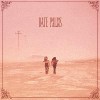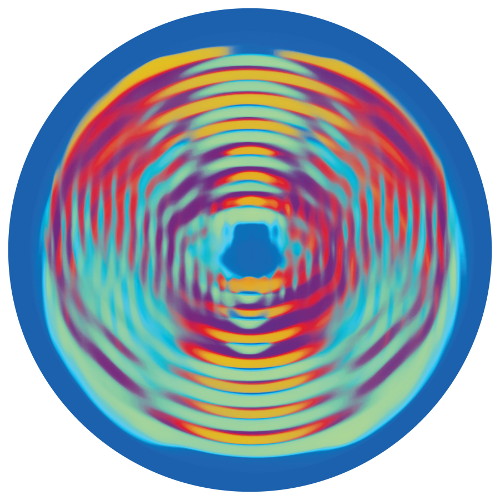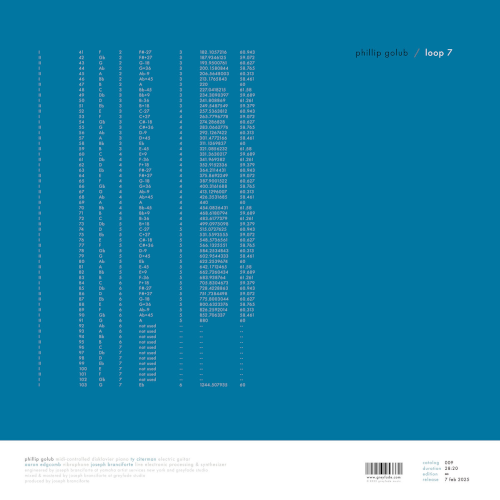 The name of the band and the album gives the game away, as perhaps it should, and the cover image of two musicians walking away towards a line of telegraph poles near-hidden in a dustcloud certainly helps too. The music by Date Palms is immediately suggestive of the desert fringes, of the places where sandy dryness meets welcome verdant relief, of Joshua Tree or the scrublands of Southern California, the Sahel of north Africa and the encroaching dryness of the Mediterranean basin: the interstices where there is enough water to support life but not enough for greenery to rule.
The name of the band and the album gives the game away, as perhaps it should, and the cover image of two musicians walking away towards a line of telegraph poles near-hidden in a dustcloud certainly helps too. The music by Date Palms is immediately suggestive of the desert fringes, of the places where sandy dryness meets welcome verdant relief, of Joshua Tree or the scrublands of Southern California, the Sahel of north Africa and the encroaching dryness of the Mediterranean basin: the interstices where there is enough water to support life but not enough for greenery to rule.
“Night Riding the Skyline” has a suitably edgier feel, as the inhabitants come out to hunt, watchful cello stepping lightly among the gathering tones and cautiously emergent pulsations; and when a prowling fuzz bass walks on to the accompany a dubbily echoing mechanistic beat, it seems like time to tread carefully among the twilit guitars and plangent electric piano. Then, softly, the cello glides back in, lit brighter now as electronic whinnies signify that the dawn may be coming. “Dusted Down” initially treads a more electronic path, arpeggiating curlicues heralding the arrival of a widescreen soundscape delivered in the key of Earth, the sun well and truly risen and holding high in the sky, supported on any arch of resolute bass and effulgent strings.
It comes as no surprise then that the last track is called “Exodus Due West,” again cresting over analogue echoes to gaze in wonder at the setting sun, subtle sitar twangs nestling resonantly among the swoops as the bass holds itself to the tempo of the dusk.
-Linus Tossio-



